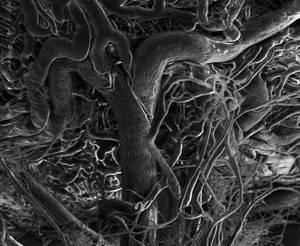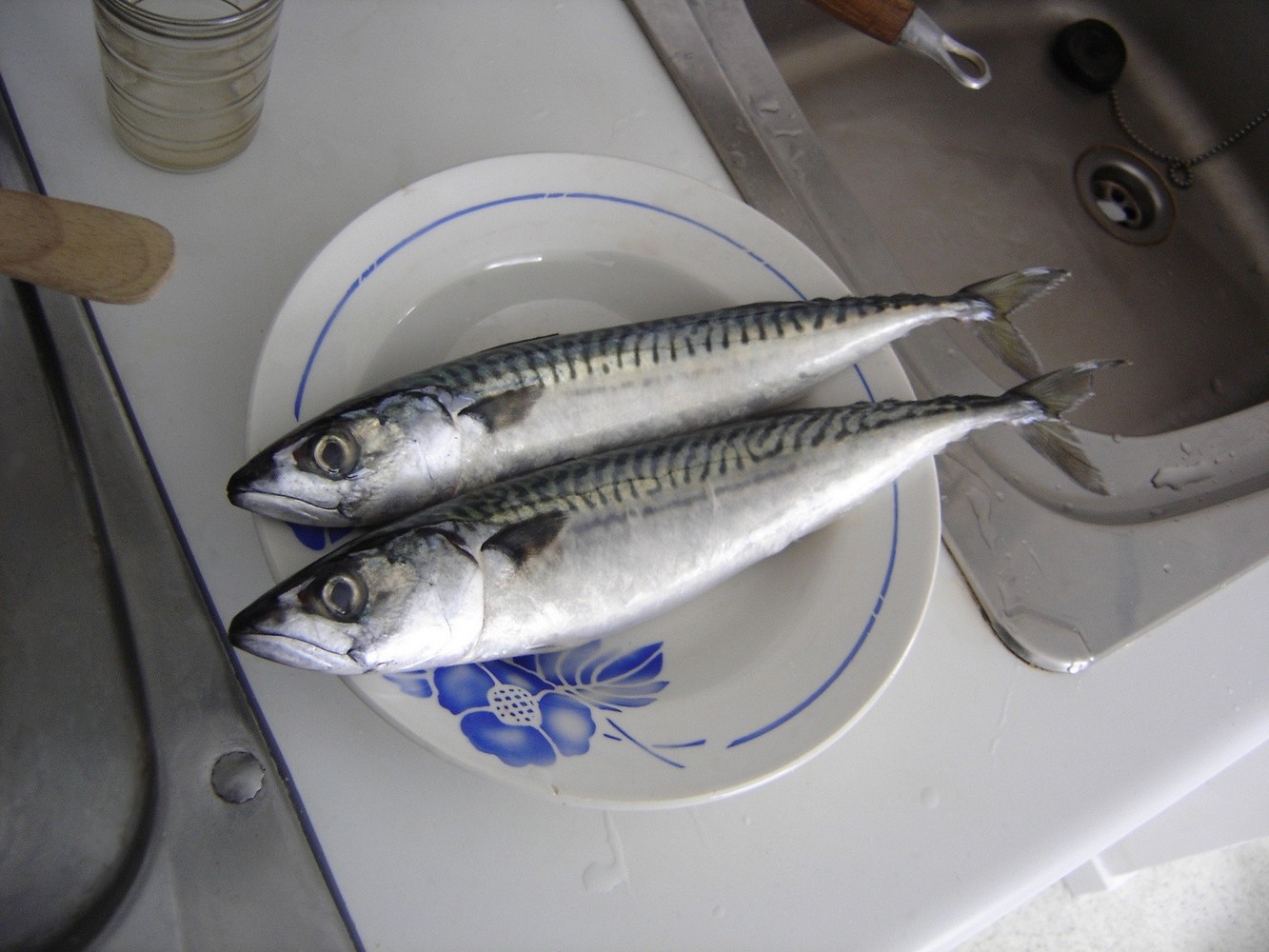Omega-3 Prevents Common Forms of Blindness
Interview with
Chris - If you're a big fan, like me, of eating oily fish then you're probably doing your eye sight a big long term favour, because scientists at Harvard Medical School have discovered that the omega-3 fatty acids that are found in the fish can block the damage that's done to the retina by diseases like macular degeneration. They have also identified the gene pathway which is responsible for this protective effect and from Harvard, to tell us how it works, here's Lois Smith.
 Lois - The problem that I have been trying to solve is one of what's called retinopathy, which is abnormal blood vessel growth in the eye. This occurs in three major diseases: In premature infants, in children, there's retinopathy of prematurity. In this case, abnormal blood vessels grow and cause retinal detachment. That is, the retina, which is the light sensitive tissue in the eye, comes off the normal mooring, and children go blind. In the middle aged or working aged population, diabetic retinopathy causes the same problem. In the elderly population, there's a disease called age related macular degeneration. There's also abnormal blood vessel growth which can bleed and cause blindness. Taken together, these three diseases are a major cause of blindness.
Lois - The problem that I have been trying to solve is one of what's called retinopathy, which is abnormal blood vessel growth in the eye. This occurs in three major diseases: In premature infants, in children, there's retinopathy of prematurity. In this case, abnormal blood vessels grow and cause retinal detachment. That is, the retina, which is the light sensitive tissue in the eye, comes off the normal mooring, and children go blind. In the middle aged or working aged population, diabetic retinopathy causes the same problem. In the elderly population, there's a disease called age related macular degeneration. There's also abnormal blood vessel growth which can bleed and cause blindness. Taken together, these three diseases are a major cause of blindness.
Chris - And what are you doing in trying to understand what unites them in terms of the pathogenesis, the way these diseases occur?
Lois - There are two parts. One is, there's first loss of normal vessels, that causes oxygen starvation and then the oxygen starvation stimulates the production of chemicals that call in this pathologic or abnormal blood vessel growth. So, I've been trying to understand basic pathways that cause this disease process - both vessel loss and abnormal blood vessel proliferation.
Chris - And what's been the experimental method? What are you actually doing?
Lois - I've developed a method in mice and in this model system, we expose mice to high levels of oxygen and then bring them out into room air, and the blood vessels in the eye first disappear and then come back, roaring back in this pathologic form. Because it's in a mouse, we can do genetic manipulation and by doing that, and then subjecting them into this oxygen, we can find which gene pathways are involved in the disease process.
Chris - And presumably also, whether different treatments or interventions work...
Lois - Absolutely.
Chris - ...and in what context. In other words, which gene pathways those treatments, which we know exist but don't yet know how they work, we get an insight into how they do work.
Lois - Absolutely, that's true. In this case, I was very interested in looking at omega-6 fatty acids and omega-3 fatty acids. So the omega-6 fatty acids are the kind that are found in hamburgers basically, and the omega-3 are found in fish or a Japanese type diet. So we looked at the difference in these two diets to determine whether or not by changing the ratio of lipids that you ingest, whether or not that would have an effect on this proliferative disease - that is the production of these abnormal blood vessels.
Chris - Because if you look at the epidemiology, if you look at populations of humans, what they eat, and who gets what, people who do have a fish dominated diet tend to fair much better, and they're also at much lower risk of getting these retinopathies compared with people who are the hamburger eaters.
Lois - There's been one study in age-related macular degeneration that did suggest that and we have been working with that group at the National Eye Institute to provide the fundamental scientific basis for that process. Yes, that's true. And in the study, what we're looking for is what metabolite - that is what breakdown product really causes this beneficial effect and what are the enzymes, or what are the molecules within our body that create the breakdown product. Some of the enzymes are very, very commonly inhibited with over-the-counter drugs. There's one that's called Cyclooxygenase or COX and the COX inhibitors include aspirin and ibuprofen. So, these are drugs that many people take and we wanted to be sure that the metabolic products that cause the beneficial effect was not blocked by taking something as simple as aspirin.
 Chris - And put my mind at rest and tell me that it's not, please.
Chris - And put my mind at rest and tell me that it's not, please.
Lois - It's not. You can do both. You can take aspirin or ibuprofen and still take omega-3 fatty acids and have the beneficial effect of both.
Chris - Which is a massive relief, given the huge contribution aspirin is making to saving lives from stroke and heart disease, and maybe even preventing Alzheimer's disease as well. But if it's not impacting on those pathways, what are these fatty acids doing to prevent people getting retinopathy then?
Lois - It's going through a different pathway that's called lipoxygenase or LOX, and this pathway produces a specific metabolite called 4-HDHA which provides the beneficial effects. And interestingly enough, one of these effects is through an enzyme called PPAR-gamma which is what drugs to help improve insulin sensitivity in diabetes also activates. So the implication of this is that by taking an increased level of omega-3 fatty acids we're increasing insulin sensitivity in diabetes as well.
Chris - So now that you know this, now you know the pathway involved, does this mean that you can prevent the depletion of oily fish in the sea that we love to a certain extent by producing some kind of molecule which will be very targeted at this problem of retinopathy and can exploit the same effect?
Lois - That's exactly what we're interested in pursuing next and yes, that's our hope and expectation. Although it may still be better instead of depleting the fish in the sea to have algae make the omega-3 fatty acids that we can still take. It may be simpler to take the precursor than it is to take the metabolic product, but I think we can do it without depleting fish.
Chris - Can algae do that? How easy is it to get the algae to do what the fish do for us at the moment?
Lois - Actually, they are the original source because algae produce it and then the fish eat it, and we then eat the fish. So, it's quite simple to have them do that.
Chris - I think I'll stick with the oily fish. I think it's probably tastier than eating the algae, but fascinating. I just did not know that the essential omega-3 fatty acids come from algae, not the fish. That was Dr. Lois Smith, she's from Harvard Medical School and she published the work you've just been hearing about in the journal Science Translational Medicine this week.









Comments
Add a comment